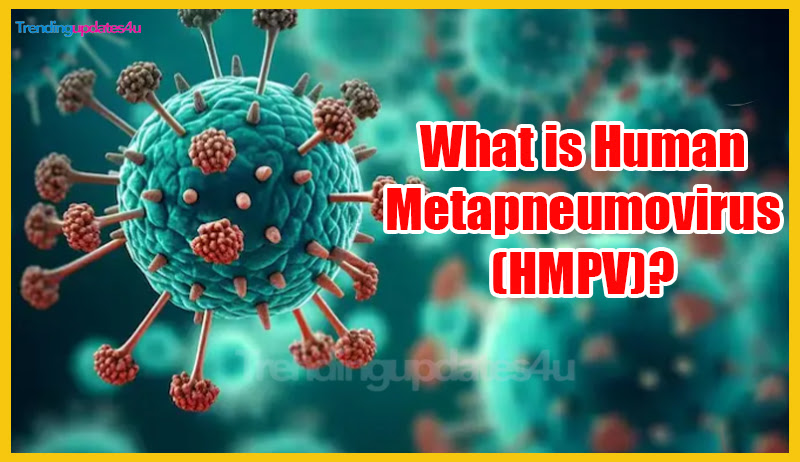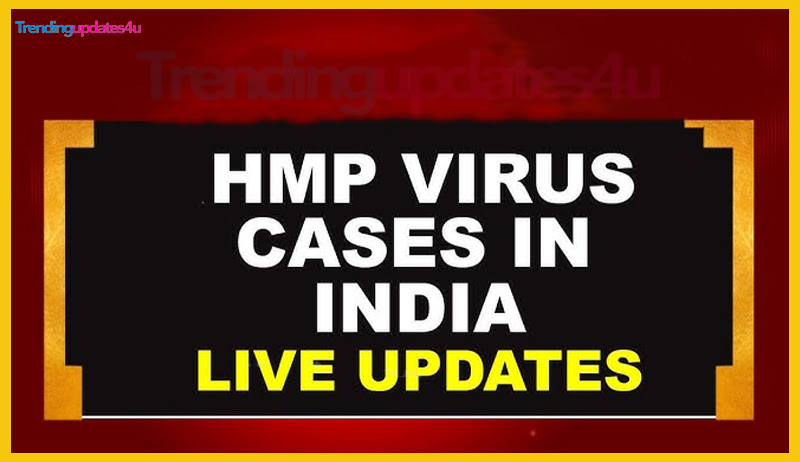HMPV Virus Cases Live Updates:- The Human Metapneumovirus (HMPV) is making headlines across India, with new cases being reported from Gujarat, Maharashtra, Assam, and Puducherry. This article delves into the latest updates, the impact of the virus on vital organs like kidneys, and essential signs and symptoms every Indian household needs to be aware of.
HMPV Virus Cases Live Updates
The rising number of Human Metapneumovirus (HMPV) cases in India has become a topic of concern for health authorities and the general public. Recent reports indicate five confirmed cases across Gujarat, Maharashtra, Assam, and Puducherry, with a nine-month-old child and a 59-year-old man testing positive in Gujarat. These cases highlight the virus’s ability to affect both young children and older individuals, especially those with no travel history or direct exposure to foreign regions.

The Health Ministry has urged all states to strengthen surveillance for Severe Acute Respiratory Illnesses (SARI) and Influenza-Like Illnesses (ILI) to monitor any surge in infections. Hospitals like Meditrina in Nagpur are preparing to handle potential HMPV cases as the virus continues to spread globally, including in India. While the virus often causes mild respiratory symptoms such as cough, fever, and nasal congestion, it can lead to severe complications in high-risk groups like infants, the elderly, and immunocompromised individuals.
HMPV Virus Details
| Aspect | Details |
| Full Name | Human Metapneumovirus (HMPV) |
| Symptoms | – Cough – Fever – Runny or blocked nose – Difficulty breathing or wheezing |
| Recent Cases in India | – Locations: Gujarat, Maharashtra, Assam, Puducherry – Total reported cases: 5 (as of now) |
| Vaccination | No vaccine available |
| Category | Health |
What is Human Metapneumovirus (HMPV)?
HMPV, first identified in 2001, is a respiratory virus that spreads through:

- Direct contact with an infected individual.
- Contaminated surfaces, such as doorknobs or shared objects.
- Aerosol droplets, released when an infected person coughs or sneezes.
The HMPV virus causes symptoms similar to the flu, primarily impacting children, the elderly, and immunocompromised individuals.
HMPV Virus Cases in India: Live Updates

- Nagpur, Maharashtra: Preparations are underway at Meditrina Hospital following the report of two suspected cases.
- Gujarat: Five cases have been reported within a week, including a nine-month-old child and a 59-year-old man, both with no travel history.
- Assam and Puducherry: Two young children, aged 10 months and 3 years, were recently diagnosed.
The Indian Council of Medical Research (ICMR) confirms that HMPV is already circulating globally, including in India.
Impact of HMPV on Kidneys
While HMPV primarily affects the respiratory system, recent studies and anecdotal evidence suggest potential secondary complications, including kidney strain. This occurs due to:
- Dehydration caused by persistent fever and reduced fluid intake.
- Increased immune response, which can lead to temporary inflammation of vital organs.
- Pre-existing conditions like diabetes or hypertension, which heighten the risk of kidney-related issues.
Monitoring kidney function in at-risk groups, including young children and the elderly, is critical during an HMPV infection.
Signs and Symptoms of HMPV
Recognizing the symptoms early can help prevent severe complications. HMPV Virus Common symptoms include:
- Mild Symptoms:
- Runny or blocked nose.
- Persistent cough.
- Low-grade fever.
- Severe Symptoms (especially in vulnerable groups):
- Difficulty breathing or wheezing.
- Fatigue and lethargy.
- Chest discomfort.
- Red Flags:
- Reduced urine output, indicating potential kidney involvement.
- Persistent high fever unresponsive to medication.
- Severe dehydration or dry lips.
Precautions and Preventive Measures
To curb the spread of HMPV, adopt the following precautions:
- Hygiene Practices: Wash hands frequently with soap and water. Avoid touching your face, especially the nose and mouth, with unclean hands.
- Social Distancing: Maintain distance from individuals showing flu-like symptoms. Avoid crowded places during outbreaks.
- Masks: Wear a well-fitted mask, especially in high-risk areas.
- Immunity Boosters: Include Vitamin C, zinc, and herbal teas in your diet to strengthen immunity.
How to Protect Yourself and Your Family?
- Hygiene Practices: Wash hands frequently, especially after coughing, sneezing, or touching public surfaces.
- Mask Usage: Wear a mask in crowded or enclosed spaces.
- Disinfection: Regularly disinfect commonly touched surfaces like doorknobs and phones.
- Immunity Boost: Maintain a healthy diet rich in vitamins and stay hydrated.
- Timely Care: Consult a healthcare professional at the onset of symptoms, especially for at-risk groups.
When to See a Doctor
If you or a loved one experience severe symptoms such as difficulty breathing, persistent high fever, or signs of kidney distress (e.g., reduced urination), consult a doctor immediately.
Conclusion
The Human Metapneumovirus is a reminder of the importance of vigilance, hygiene, and early medical intervention. While most cases remain mild, the potential impact on critical organs like the kidneys calls for heightened awareness, especially for vulnerable groups.
Stay updated, follow government guidelines, and ensure that you and your loved ones are protected.
FAQ’s
What is Human Metapneumovirus (HMPV)?
HMPV is a respiratory virus first identified in 2001. It spreads through direct contact, contaminated surfaces, or respiratory droplets and primarily causes mild flu-like symptoms.
Who is most at risk from HMPV?
The virus mainly affects:
- Young children.
- Elderly individuals.
- People with weakened immune systems or pre-existing health conditions.
What are the symptoms of HMPV?
Common symptoms include:
- Cough.
- Fever.
- Runny or blocked nose.
- Difficulty breathing or wheezing in severe cases.
Can HMPV affect the kidneys?
While rare, HMPV can lead to kidney strain, especially in high-risk groups. This is usually due to dehydration or an overactive immune response.
How is HMPV different from the flu or COVID-19?
HMPV symptoms are similar to the flu, but it is less severe in most cases. Unlike COVID-19, HMPV has not shown significant systemic complications or a high mortality rate.
Is vaccination available for HMPV?
Currently, no vaccine is available for HMPV. Prevention relies on hygiene and social distancing measures.
Related Posts:-